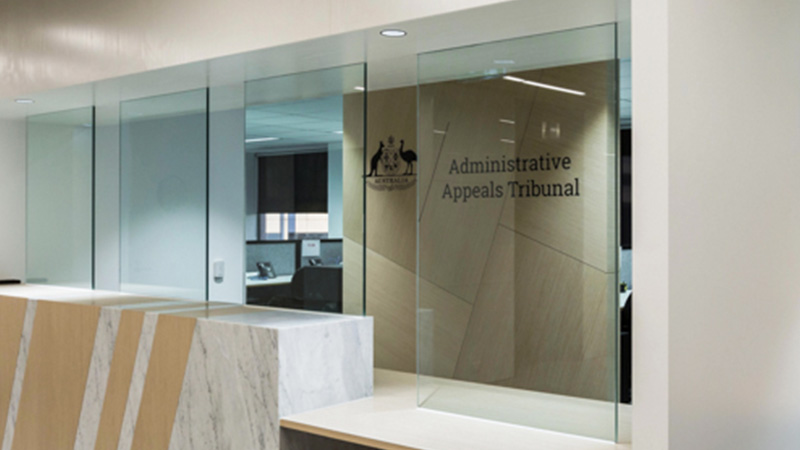AAT upholds decision on family tax benefits case
The Administrative Appeals Tribunal has upheld an earlier decision not to grant an extension to an SMSF trustee and her partner who were late lodging their personal and SMSF tax returns.
In the case of Berges and Secretary, Department of Social Services (Social services second review) [2020] AATA 3507, Mrs Berges and her partner appealed an earlier decision not to grant an extension of time to lodge their income tax returns for the 2015–2016 financial year.
The applicant, Mrs Berges, received fortnightly payments of family tax benefit (FTB) during the 2015–16 financial year based on estimates she provided of her and her partner’s combined adjustable income.
In a letter dated 21 March 2017, the department informed the applicant that to receive her full entitlement to FTB including supplementary and top-up payments, her and her partner’s tax returns for the 2015–2016 financial year needed to be lodged by 30 June 2017.
The letter also made clear that if they did not lodge their tax returns or advise the department that they were not required to lodge tax returns by 30 June 2017, the applicant would not be eligible for any further FTB.
On 14 July 2017, the department sent another letter explaining that her FTB income information for the 2015–2016 financial year was overdue.
In September that year, an account payable letter was sent to the applicant advising her that the full amount of FTB paid to her in 2015–2016 was to be recovered because both she and her partner had not lodged their tax returns.
The income tax returns for both the applicant and her partner were finally lodged with the ATO on 17 April 2018.
On 10 May 2018, the applicant’s FTB payments for the 2015–2016 financial year were reconciled with her and her partner’s tax returns. The secretary decided that, because the applicant and her partner’s income tax returns were lodged more than 12 months after the conclusion of the 2015–2016 financial year, the department was unable to pay her any FTB supplement or top-up payment.
The reconciliation showed that had the applicant and her partner lodged their 2015–2016 financial year tax returns on time, she would have had a total entitlement to FTB payments for the year of $18,442.74, of which she had already received $10,709.16. As a result of the late lodgement, the applicant was not entitled to the remaining $7,733.58.
In May 2018, the applicant requested a review and an extension of time to lodge the tax returns, claiming special circumstances.
On 27 July 2018, an authorised review officer (ARO) affirmed the decision that supplementary and top-up FTB payments were not payable for the 2015–2016 financial year.
In 2019, the Administrative Appeals Tribunal affirmed the decision by the ARO.
The applicant and her partner had relatively complex tax affairs, with an SMSF, a small electrical business, and seven investment properties, two of which are held by the SMSF.
The applicant also provided evidence of a range of serious health conditions. She also stated that her partner had suffered a workplace injury requiring an operation.
She also said that she and her partner changed their accountant in 2016 for reasons of cost and because it was difficult to access their previous accountant’s office in the city.
The accountant was appointed to do the couple’s taxes for the 2016 and 2017 years for their personal tax returns, family trust and SMSF.
She claimed that the accountant they chose failed to do the work promptly, and took over a year to lodge the personal tax returns which also contained mistakes.
The applicant claimed that the accountant’s lack of timeliness prevented her and her partner from lodging their 2015–2016 tax returns by 30 June 2017.
In its decision, the tribunal found that the applicant’s paperwork workload relating to their small business, managing their seven investment properties and their SMSF were not relevant considerations as special circumstances in relation to the applicant managing their FTB obligations because they are the normal obligations of any taxpayer who chooses to operate such entities.
The tribunal also stated that the length of time taken by an accountant to complete tax returns is not normally treated by social security decision-makers as a special circumstance.
The tribunal was very sympathetic to the debilitating nature of the applicant’s health issues and while they would constitute special circumstances, as the preparation of the tax returns was placed in the hands of the accountant more than a month before the deadline, the tribunal stated it could not make a finding that the health issues prevented lodgement by the due date.
“Given that the tax returns were not lodged for more than nine months after the deadline, the tribunal finds that the cause of the applicant’s failure to lodge the tax returns by the deadline was not special circumstances,” it stated.
“She and her partner did not give sufficient weight to timeliness in relation to the requirement that their tax returns needed to be submitted by 30 June 2017 for FTB purposes.”

Miranda Brownlee
Miranda Brownlee is the deputy editor of SMSF Adviser, which is the leading source of news, strategy and educational content for professionals working in the SMSF sector.
Since joining the team in 2014, Miranda has been responsible for breaking some of the biggest superannuation stories in Australia, and has reported extensively on technical strategy and legislative updates.
Miranda also has broad business and financial services reporting experience, having written for titles including Investor Daily, ifa and Accountants Daily.








